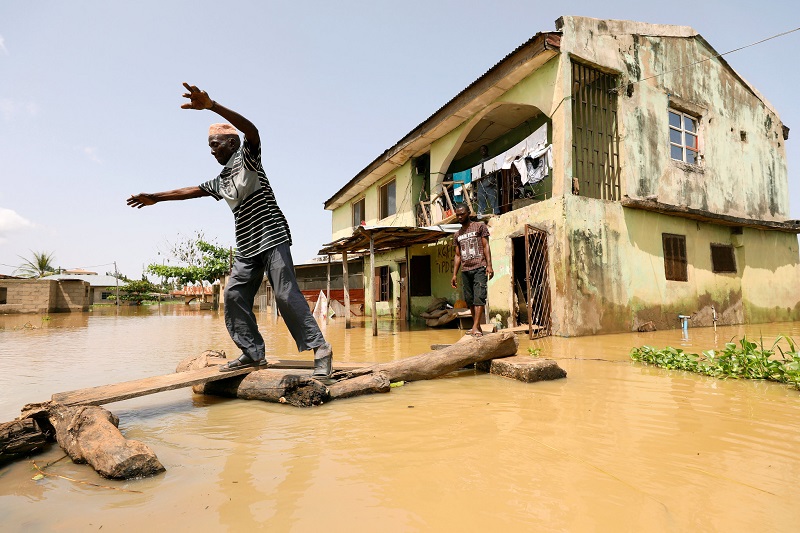Last updated on September 29th, 2022 at 08:06 am
Floods continue to wreak havoc across Nigeria, causing further devastation to agricultural lands, the loss of harvests, and the displacement of tens of thousands of people from their homes. At least 300 people have died since the beginning of the year, and it is thought that around 100,000 people have been forced to leave their homes and are now living in temporary shelters.
An estimated half a million people have been impacted by the flooding, which has also caused damage to infrastructure and farms in 27 of Nigeria’s 36 states, as well as the country’s capital. The situation is difficult for farmers. People have been hit hard in the small town of Tiga, which is about 70 kilometers north of Kano.
This formerly fertile land is now entirely unproductive. The rice died as a result of flooding after it had subsided. Then, again, another catastrophe took place. The storm swept away the bridge, and the entire field is now covered in sand and shattered bitumen, both of which were deposited by the rain. Adamu Garba, a rice farmer in Tiga, stated that at this point they don’t even have a field to sow crops in.
Others, such as Kabiru Alassan, have been successful in retrieving a portion of their crop from the flooded paddies. “We were flooded as a result of a terrible accident. Sand was washed off the road and onto our paddy fields as a result of the floods. By the grace of Allah, we are going to harvest what little is left of what we had.” According to him, the rains had never been this devastating before.
Concerns about food security despite the fact that farmers claim they have little choice but to confront the challenges that lie ahead, they are making an appeal to the authorities for assistance in dealing with the precarious situation. “We are making a request for assistance from the government as well as from international organizations.” We are making a plea to anyone who is able to assist us, asking them to have compassion and come to our aid since we are in dire need of it, as stated by Garba.
Related Posts
Garba, a local farmer, reported that he had suffered significant losses and believed that it was highly improbable that he would be able to harvest more than a half bag of rice this year. This was consistent with the experiences of other local farmers.
Because none of the crop we were anticipating has materialized, we must prepare ourselves for difficulties that will arise after the harvest. Concerns have been raised about the future events. The agricultural industry is essential to our survival. What we eat throughout the rest of the year is a direct result of what we generate during the wet season. According to him, “We stockpile the remainder of the harvest so that we can eat ourselves, and we use a portion of the produce to pay for our upkeep.”
People are worried that Nigeria’s food supply could be cut off if people are uprooted from their homes, important infrastructure is damaged, and agriculture is destroyed.

